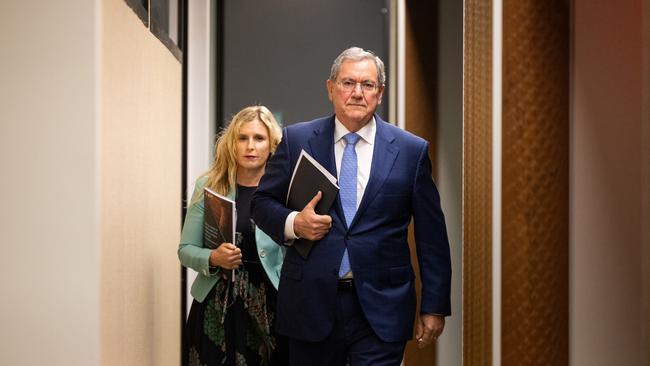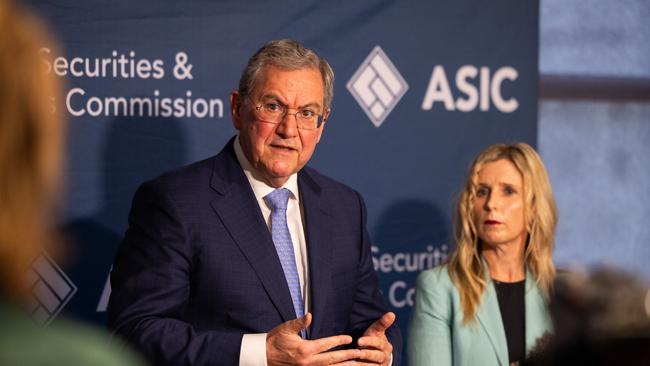ASIC tiptoes around overreach concerns in private markets review
The corporate regulator also says there is a need to reform the sophisticated investor threshold, which has been set at $250,000 for 20 years.

The corporate regulator has urged the market to refrain from jumping to conclusions in pre-empting the outcome of its private markets review.
Investment managers are hoping the Australian Securities & Investments Commission will decide voluntary standards of disclosure are sufficient to protect investors.
ASIC chair Joe Longo has yet to reach “any firm conclusions” from his sweeping review into the opaque world of private equity, private credit and venture capital investing bookended by a shrinking public market.
But Mr Longo is also concerned about the potential consequences of regulatory intervention because “Australia has really made a virtue of regulatory complexity”.
“I worry about it a lot,” Mr Longo said on Wednesday. “It affects our productivity, and it has, whatever one might think about ASX listings, it’s making the job a lot harder running a company.”
There was no deadline for ASIC’s conclusions: “What’s really important is we encourage and lead an understanding of what’s going on in the markets,” he said. “I have no intention to be rushing into anything.”
Nearly 50 public submissions to the review of public and private markets were revealed on Wednesday, with another 40 confidential submissions in the regulator’s possession, such as that of private lending heavyweight Metrics.
The regulator has been concerned about a withering of the public market, as companies increasingly choose to remain in private to avoid the disclosure and regulatory compliance required of publicly traded entities.
Market operators acknowledged “the need for any regulatory guidance to be measured”, ASIC remarked.
Mr Longo hinted that a high-touch regulatory framework may need law reform.
“I’m a bit more cautious on introducing prescriptive rules around valuations, disclosure, fees, conflicts of interest, how these transactions actually get done and how the market develops,” he said.
“I really want to understand (private markets) before I start going in there telling people what to do. And so that’s why I’m using words like best practice, standards, expectations, because we’re dealing with quite sophisticated markets that are used to developing codes and practices themselves and working with regulators.”
The ASIC chair also repeated the regulator’s call for the significant investor test, currently set at $2.5m in assets or a gross income of $250,000 per year, to be upgraded.
“It hasn’t been changed in 20 years and it now captures a very significant number of Australians. And I think many of us would think many of them aren’t really sophisticated investors, but they’re deemed to be.”

Ratings house SQM Research, in its submission, relayed a significant increase in the number of wholesale fund product offerings across various asset classes; in particular, the private credit sector.
It agreed the significant investor test should be set at a higher hurdle.
“If we were to CPI index these thresholds to today’s current dollars, the thresholds would sit at approximately $4.7m and the gross annual income threshold would be set at $470,000,” SQM said.
One of ASIC’s challenges is industry transparency.
“APRA’s got data powers, the Reserve Bank’s got data powers. Our powers are a lot more limited. But even that area (data collection), you would think that’s uncontroversial, but the industry just sees it as another burden,” Mr Longo said.
“We have to figure out ways of gathering this data that’s standardised, that everybody sees the benefit of.”





To join the conversation, please log in. Don't have an account? Register
Join the conversation, you are commenting as Logout